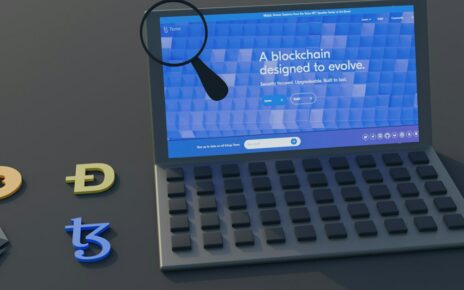Understanding Tokenization in Real Estate: Digitizing Property Ownership
In today’s rapidly evolving digital landscape, traditional industries are embracing innovative technologies to streamline processes and enhance accessibility. The real estate sector is no exception, as it delves into the concept of tokenization to revolutionize property ownership. This article aims to provide a comprehensive understanding of tokenization in the context of real estate and how it is reshaping the way properties are bought, sold, and managed.
Table of Contents
- Introduction
- What is Tokenization in Real Estate?
- The Benefits of Tokenizing Property Ownership
- Increased Liquidity
- Fractional Ownership
- Global Accessibility
- The Tokenization Process
- Asset Selection
- Legal and Regulatory Compliance
- Smart Contract Development
- Token Issuance
- Security and Transparency
- Challenges and Considerations
- Regulatory Hurdles
- Technological Infrastructure
- Investor Education
- Real-World Examples
- Property Investment Platforms
- Land Title Tokenization
- Real Estate Investment Trusts (REITs) on the Blockchain
- Future Implications and Trends
- Conclusion
1. Introduction
The digital transformation is reshaping industries, and real estate is at the forefront of this revolution. Tokenization, often associated with cryptocurrency, has gained traction in the real estate sector as a means of digitizing property ownership.
2. What is Tokenization in Real Estate?
Tokenization involves converting an asset—such as real estate property—into digital tokens on a blockchain. These tokens represent ownership and can be traded like stocks or cryptocurrencies. In real estate, tokenization divides a property into smaller, manageable portions, allowing investors to buy fractional ownership.
3. The Benefits of Tokenizing Property Ownership
– Increased Liquidity
Traditionally, real estate investments are illiquid, requiring substantial time and effort to buy or sell. Tokenization introduces liquidity by enabling investors to trade property tokens on secondary markets, enhancing flexibility and reducing exit barriers.
– Fractional Ownership
Tokenization eliminates the need for significant capital investments, enabling multiple investors to collectively own a property. This fractional ownership model democratizes real estate investments, making them accessible to a broader range of investors.
– Global Accessibility
Investors worldwide can participate in real estate markets that were previously inaccessible due to geographical limitations. Tokenization eliminates borders, enabling cross-border investments with ease.
4. The Tokenization Process
– Asset Selection
Properties chosen for tokenization undergo rigorous evaluation to ensure suitability. Factors such as market demand, potential returns, and legal considerations are weighed.
– Legal and Regulatory Compliance
Tokenized real estate must adhere to legal and regulatory frameworks. Compliance with securities laws and property regulations is vital to ensure a transparent and secure investment environment.
– Smart Contract Development
Smart contracts are essential components of tokenization. These self-executing contracts facilitate automatic processes, such as distributing rental income among token holders.
– Token Issuance
Tokens representing property ownership are issued to investors. Each token corresponds to a share of the property, with ownership rights and responsibilities outlined in the smart contract.
5. Security and Transparency
Blockchain technology ensures security and transparency in tokenized real estate. Immutable records and cryptographic verification minimize fraud risks, fostering trust among investors.
6. Challenges and Considerations
– Regulatory Hurdles
Navigating complex regulatory landscapes can be challenging. Legal frameworks must evolve to accommodate tokenized assets and ensure investor protection.
– Technological Infrastructure
Implementing tokenization requires robust technological infrastructure. Secure blockchain networks and user-friendly platforms are necessary for seamless transactions.
– Investor Education
Tokenization is a novel concept for many investors. Education about the benefits, risks, and technical aspects of tokenized real estate is essential for informed decision-making.
7. Real-World Examples
– Property Investment Platforms
Platforms like ProptechInvest and RealToken allow investors to buy property tokens, facilitating fractional ownership and trading.
– Land Title Tokenization
Governments are exploring land title tokenization to enhance property records’ accuracy and reduce fraud.
– REITs on the Blockchain
Real Estate Investment Trusts (REITs) are being tokenized, enabling investors to access diversified real estate portfolios seamlessly.
8. Future Implications and Trends
Tokenization’s impact on real estate is still unfolding. As regulations mature and technology advances, tokenization is likely to become a standard practice, democratizing investments further.
9. Conclusion
Tokenization is reshaping the real estate industry by breaking down barriers and making investments more accessible, liquid, and secure. As technology continues to evolve, the future of property ownership lies in the digital realm.
FAQs
- What is property tokenization? Property tokenization involves converting real estate assets into digital tokens on a blockchain, representing ownership and allowing fractional investments.
- How does tokenization enhance liquidity? Tokenization enables property tokens to be traded on secondary markets, providing investors with greater liquidity and flexibility.
- Are there regulatory challenges in tokenizing real estate? Yes, navigating regulatory frameworks is a challenge. Legal systems need to adapt to accommodate the unique aspects of tokenized assets.
- What role do smart contracts play in tokenization? Smart contracts automate processes like income distribution among token holders, ensuring transparent and efficient management.
- What is the future of property tokenization? As technology and regulations evolve, property tokenization is poised to become a standard practice, transforming the way real estate is bought and sold.




